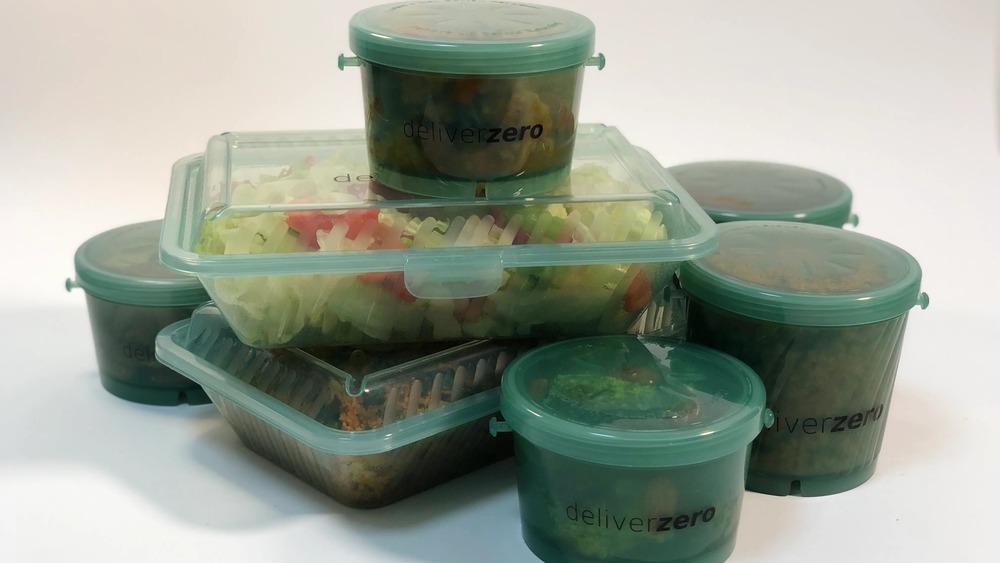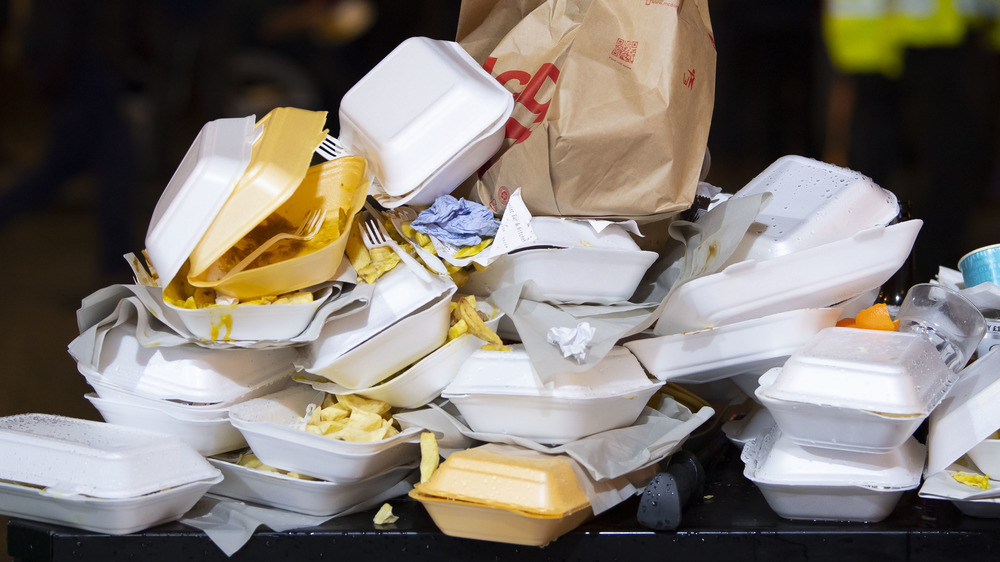This Delivery Service Wants You To Return Your Take-Out Containers
One darling company to come out of 2020 is DeliverZero, a New York City-based brand that works with over 100 local restaurants to deliver with reusable take-out containers. The idea, which is illustrated on its How It Works page, is that when you order food, it arrives in a reusable container that you can return in six weeks or buy for $3.25. Then, after cleaning, the cycle starts again.
These containers are helping address a serious issue. In 2018, the University of Manchester released the results of a study via Science Daily that estimated the European Union used 2025 million takeaway containers annually. Though the examination was restricted to Europe, researchers suggested that by ensuring these containers were recyclable, the EU would reduce greenhouse gas emission by an amount comparable to 55,000 cars. And according to DeliverZero, New York alone throws out nearly 1 billion take-out containers each year.
Because of the timeliness of the problem DeliverZero addresses, they have appeared in spotlights for both Quartz and the World Economic Forum. "The vision here was to come up with a way of inviting customers in a way that didn't make them change their habits radically," Adam Farbiarz, co-founder of DeliverZero, explained to World Economic Forum.
However, our attention should also briefly drop on other businesses, like Grainmaker, a fast-casual brand with restaurants in Boston and Somerville that Recycling Works Massachusetts spotlighted in October. In their scheme, they offer repeat customers glass containers for $10 that makes them eligible for five percent discounts for future meals they take away in those containers. Such a wide problem will require these patchwork solutions.
The importance of reducing waste and reusing containers over recycling
The emphasis on containers that can more continuously cycle in a loop may cause some to wonder why we should choose this solution over introducing more recyclable options in delivery packaging.
The biggest issue with relying on recycling is that most, if not all, of recycling is built upon a myth. As NPR revealed in September, by the 1970s, scientists and industry executives knew that recycling on scale was infeasible. Plastic deteriorates and in general, it is cheaper to make plastic out of oil than out of disposed plastic goods.
By the '80s, plastic's image as a polluter worsened. So the industry started to publicly say that they were going to recycle. In private, the tone was different, as Larry Thomas, the former president of the Society of the Plastics Industry, remembers: "They knew that the infrastructure wasn't there to really have recycling amount to a whole lot." So, eventually they stopped bothering, opting to ship the goods to China until American-Chinese relations ruined that outlet. Now, some collectors, like Laura Leebrick, whom NPR interviewed, are dumping the supposedly recycled goods into landfill without most of the country knowing.
Still, public perception changed. However, at the end of a HuffPost piece that navigates the complexities of the dysfunctional recycling system, Eric A. Goldstein, New York City environment director, explains that even with recycling, moving to a reusable future, as envisaged by DeliverZero and Grainmaker, would render the best case scenario.

